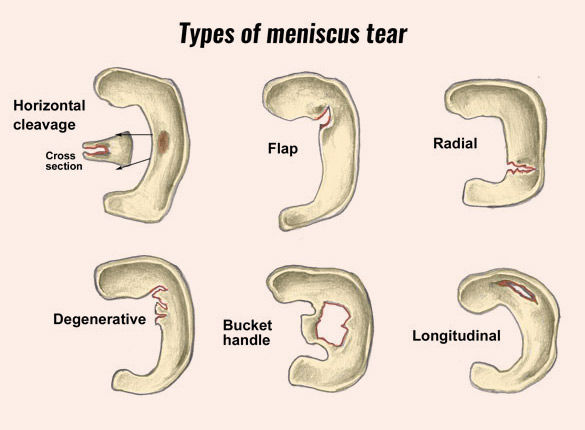Exercise and the Menstrual Cycle: How Physiotherapy Can Help You Stay Active Physio360 Chennai.
- PHYSIO 360

- Nov 4, 2025
- 4 min read

Introduction.
Every woman experiences the menstrual cycle differently — from mild mood changes to intense cramps and fatigue. But did you know that regular exercise during your menstrual cycle can actually reduce pain, improve mood, and balance hormones? At Physio360 Chennai, our physiotherapists help women understand how their body’s hormonal changes affect exercise performance and recovery, guiding them through safe and effective workouts tailored to each menstrual phase.
Understanding the Menstrual Cycle.
The menstrual cycle typically lasts 28 days and consists of four phases:
Menstrual Phase (Days 1–5) – The bleeding phase, where energy levels drop due to low estrogen and progesterone.
Follicular Phase (Days 6–14) – Hormones start to rise, improving energy and mood.
Ovulation Phase (Around Day 14) – The body prepares for possible pregnancy; energy peaks.
Luteal Phase (Days 15–28) – Progesterone increases, which can cause fatigue, bloating, and emotional changes.
Understanding these stages helps tailor exercise intensity to match your body’s capacity, something our experts at Physio360 Centre in Chennai specialise in.
Benefits of Exercise During the Menstrual Cycle.
Many women believe rest is best during menstruation — but scientific studies show exercise can relieve symptoms. Some key benefits include:
✅ Reduced cramps (Dysmenorrhea relief): Gentle movement improves blood circulation and releases endorphins, the body’s natural painkillers.
✅ Mood stabilisation: Exercise reduces PMS symptoms such as irritability and depression.
✅ Hormonal balance: Regular physical activity supports optimal estrogen and progesterone levels.
✅ Better sleep and digestion: Exercise regulates metabolism and promotes relaxation.
✅ Improved fitness and muscle tone: Staying consistent helps maintain energy and strength throughout the month.
Exercise Recommendations for Each Phase.
Menstrual Phase (Days 1–5)
Goal: Pain relief and relaxationRecommended activities:
Gentle yoga and stretching (child’s pose, cat-cow, pelvic tilts)
Deep breathing exercises to relax the pelvic muscles
Short walks or light mobility workouts
Tip from Physio360: Avoid heavy lifting or intense cardio during this time; focus on self-care and gentle movement.
Follicular Phase (Days 6–14)
Goal: Build strength and staminaRecommended activities:
Strength training (moderate weights, resistance bands)
Cardio workouts (cycling, swimming, Zumba)
Core strengthening and Pilates
Tip: Estrogen levels are rising, meaning your body recovers faster. This is a great phase to increase workout intensity under supervision at Physio360 Chennai.
Ovulation Phase (Around Day 14)
Goal: Maximise energy and powerRecommended activities:
High-Intensity Interval Training (HIIT)
Dance workouts or running
Functional training
Physio360 Insight: The body is at its peak energy level, but beware — joints may be slightly more flexible due to hormonal changes, increasing injury risk. Warm up properly and stretch post-workout.
Luteal Phase (Days 15–28)
Goal: Maintain balance and manage. Recommended activities:
Moderate-intensity workouts (aerobics, brisk walking)
Yoga for relaxation
Breathing and mindfulness sessions
Tip: This phase may cause tiredness, so focus on restorative exercises. Physio360 therapists often suggest progressive muscle relaxation and pelvic floor exercises to relieve bloating and discomfort.

Physiotherapy Support During Menstruation – The Physio360 Approach.
At Physio360, we understand that menstrual health is an essential part of women’s well-being. Our physiotherapists use evidence-based techniques to manage:
Severe menstrual cramps (Primary Dysmenorrhea)
Pelvic floor dysfunction
Lower back pain during periods
Abdominal bloating and fatigue
Hormonal imbalance-related musculoskeletal pain
Our women’s health physiotherapy program includes:✔ Manual therapy for pelvic and lumbar relaxation✔ Myofascial release for tension relief✔ Core stability and pelvic floor strengthening✔ Breathing techniques for pain management✔ Personalised home exercise programs
These methods ensure faster recovery, better menstrual comfort, and improved fitness throughout your cycle.
Exercise and Hormones – The Science Behind It.
Exercise impacts hormonal balance in powerful ways:
Estrogen: Enhances fat metabolism and improves joint flexibility.
Progesterone: Regulates temperature and mood; moderate exercise stabilises its fluctuations.
Endorphins: Released during exercise, they act as natural mood lifters and pain reducers.
At Physio360 Centre, our experts help you align workouts with your hormonal rhythm for maximum results and minimal discomfort.
Lifestyle Tips for a Healthy Cycle
✅ Maintain a balanced diet with iron, calcium, and omega-3 fats.
✅ Stay hydrated to prevent bloating.
✅ Avoid excessive caffeine and salt.
✅ Get adequate sleep and manage stress with meditation.
✅ Track your cycle using apps to schedule workouts efficiently.
Our Physio360 Chennai physiotherapists can help design a cycle-friendly exercise plan that fits your body type, goals, and lifestyle.
When to Seek Professional Help.
If you experience:
Severe cramps that interfere with daily life
Back or pelvic pain that persists
Heavy bleeding or irregular cycles
Fatigue and dizziness during workouts
…consult the women’s health experts at Physio360 Chennai. Early intervention through physiotherapy and guided exercise can prevent long-term complications like endometriosis-related pain, muscle tightness, or postural imbalances.
Conclusion
Your menstrual cycle shouldn’t hold you back from staying active. In fact, understanding your body’s hormonal pattern allows you to work with your cycle, not against it. With professional support from Physio360, you can manage pain, balance hormones, and achieve better overall health through tailored physiotherapy and exercise routines.

Call to Action
Reclaim your energy and confidence every month! Visit Physio360 Chennai today for a personalised Women’s Health & Menstrual Cycle Physiotherapy Program. Expert care, Effective exercises, and Holistic healing.
RESEARCH AND REFERENCE ARTICLE.
1.Exercise and menstrual functionhttps://pmc.ncbi.nlm.nih.gov/articles/PMC1781987/.
2.The effect of physical activity across the menstrual cycle on reproductive functionhttps://pmc.ncbi.nlm.nih.gov/articles/PMC3946734/.




Comments